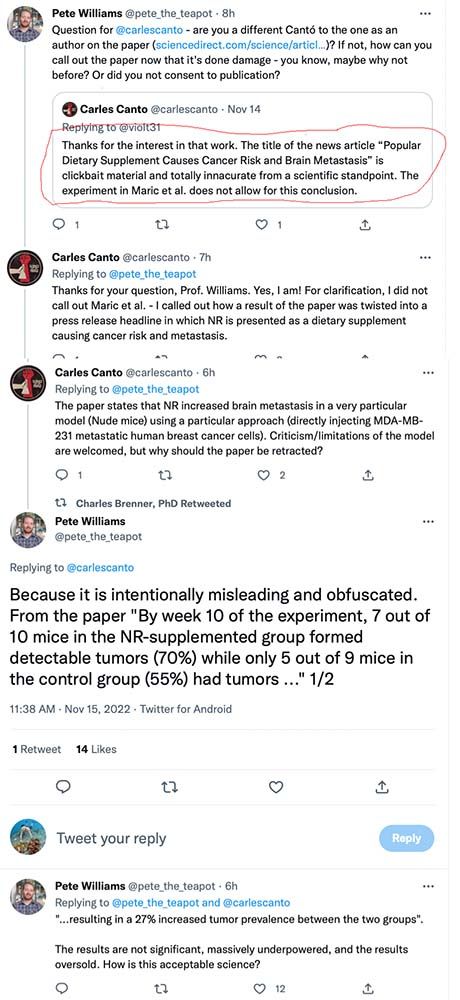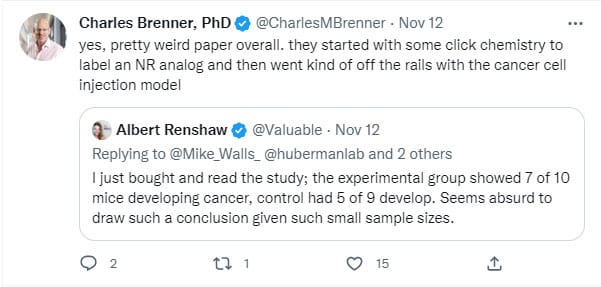
A recent article in sciencedaily.com took some research out of context and wrote a review with a click-bait title that caused a lot of uproar as others repeated the faulty review.
Here is the title of the original research:
What the study does show
The study was commendable for its development of a bioluminescent probe to do real-time imaging of NR uptake. The tool can be used for non-invasive longitudinal imaging of NR uptake both in vitro and in vivo. According to the authors, this presented a novel way to investigate the role of NR uptake in cancer prevalence and metastases formation.
Clickbait title used in articles that write about the study
Here is the click-bait article that reviewed the research:
Popular dietary supplement increases breast cancer risk, brain metastasis, study suggests
Just from the title, you can see that the article is going far beyond what the study actually shows.
Link between NR and cancer unsupported
The study investigated whether NR supplementation would increase cancer prevalence in various cancer models. Mice were split into two groups – a control group and a group with an NR-enriched diet.
Importantly, the study did not show statistically significant negative results for NR. Not only was there not much difference between these two groups statistically but sample sizes were too small to be statistically significant.
From the study:
“By week 10 of the experiment, 7 out of 10 mice in the NR-supplemented group formed detectable tumors (70%) while only 5 out of 9 mice in the control group (55%) had tumors”
Results are statistically insignificant
These results are not statistically significant and sample sizes were too small to rule out statistical anomalies. A calculated p-value on these results is 0.65, which would not be considered a significant result.
Although NR has a long history of being a safe and effective supplement, there are some who are misrepresenting these results in order to smear the reputation of NR.
Study author disavows claims that the study shows NR causes cancer
One of the authors of the NR study, Carles Canto disavows the claim that the study shows NR causes cancer in this tweet:

Dr. Charles Brenner responds

Dr. David Sinclair says no evidence NR supplements increase risk of cancer
To date, there have been almost 2,000 studies published on NR and NMN in mice and humans and none have shown an increase in the incidence or severity of cancer. This most recent study on NR was no exception. In his book, “Lifespan: Why we age – and why we don’t have to”, Dr. David Sinclair states:
“Both NR and NMN have been shown to benefit the health of elderly mice, and neither of these treatments show negative health effects, even in long-term mouse experiments – not in inflammation, senescence, or cancer models.”
